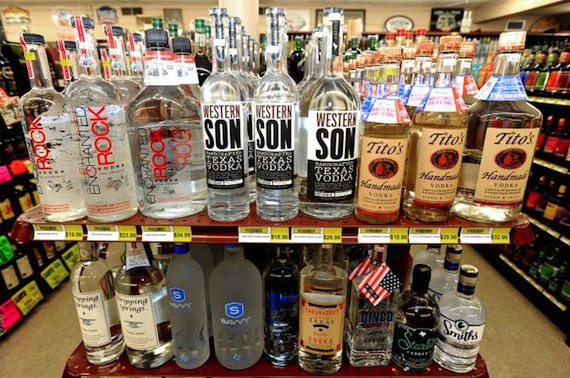 Texas has unofficially been known as beer country for quite a while, but in recent years, vodka seems to be taking over the Lone Star State. U.S. researchers addressed this fact last week at the American Chemical Society’s annual meeting in Dallas, presenting their report ‘Shaken not Stirred, Y’all! A Comparison of Select Texas Vodkas.’
Texas has unofficially been known as beer country for quite a while, but in recent years, vodka seems to be taking over the Lone Star State. U.S. researchers addressed this fact last week at the American Chemical Society’s annual meeting in Dallas, presenting their report ‘Shaken not Stirred, Y’all! A Comparison of Select Texas Vodkas.’
“The Texas vodka industry is just exploding,” said Diana Mason, Ph.D., the lead researcher. “Two years ago when we started the study, there were only six vodkas in Texas. Now there are 17 and counting. And Texans are supposed to be beer drinkers!”
The researchers conducted a vodka-tasting study in which 50 men and women sampled several small shots of vodka from Texas. Using the “swish and spit” technique popular in wine tastings, participants only consumed, at most, an ounce of vodka. The results of the study were surprising and interesting – what do you think affected a person’s vodka preference the most?
Give up?
Salt.
The two most popular brands among the 50 tasters were the ones with the most dissolved salts, which are detected by the tongue as are other tastes like sweet and sour. In addition to conductivity (which was a test the researchers used to detect the salts), the team checked the color, acidity, cost, and density of the vodkas. Did any of those other factors matter? Nope. The only thing to separate the top vodkas from the test was conductivity.
Even more surprisingly, it also did not seem to matter what the source of the vodka was. The different vodkas were made from things like corn, wheat, rye, barley, potato, berries, and even cactus – none of these affected preference. (We wonder if they tried the black-eyed pea vodka we told you about a few weeks ago…)
We think the findings of this study are very interesting and we’d love to see something like this extend beyond Texas for more insight. Is the salt preference something that’s common across the United States? Or is it really only in Texas, and possibly a few other states? We want to see if it’s regional, or national.

